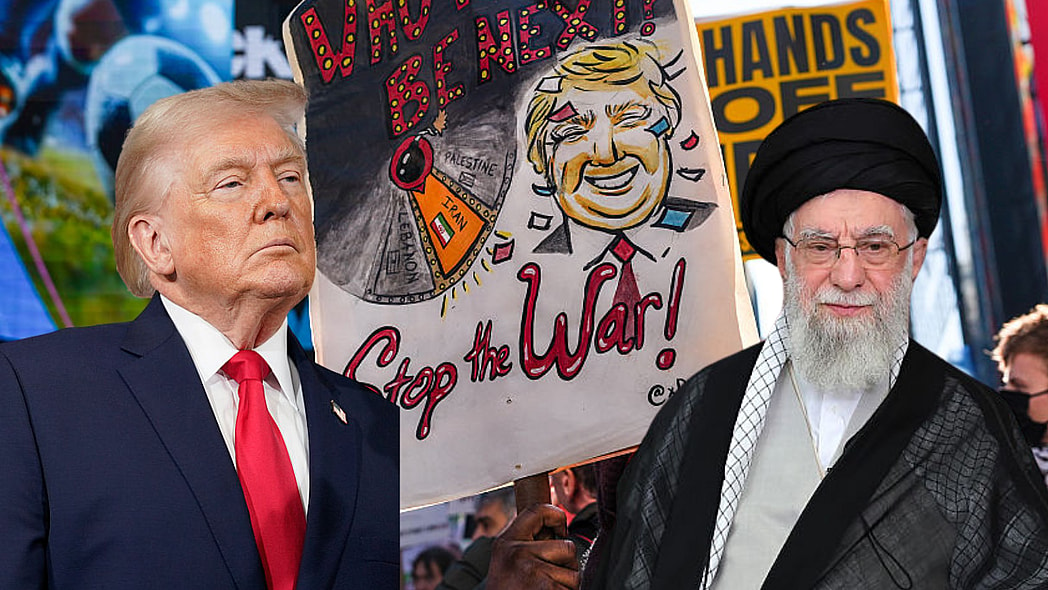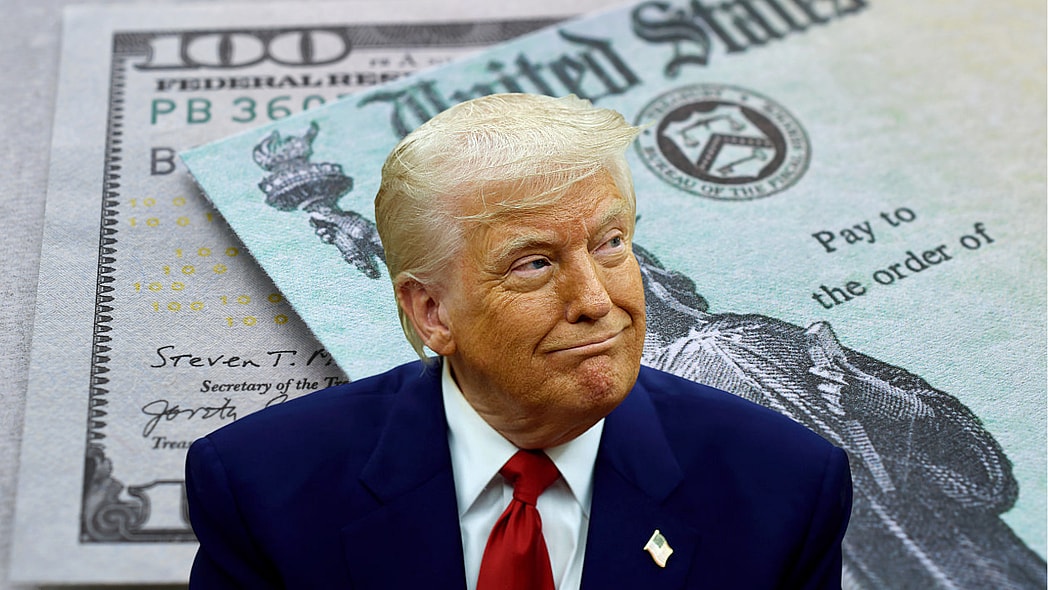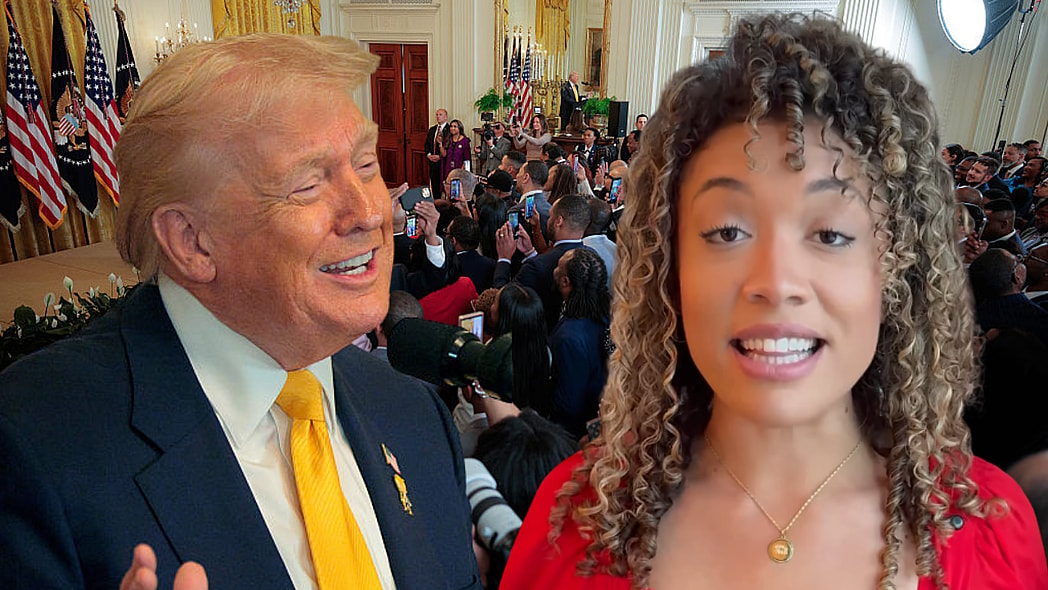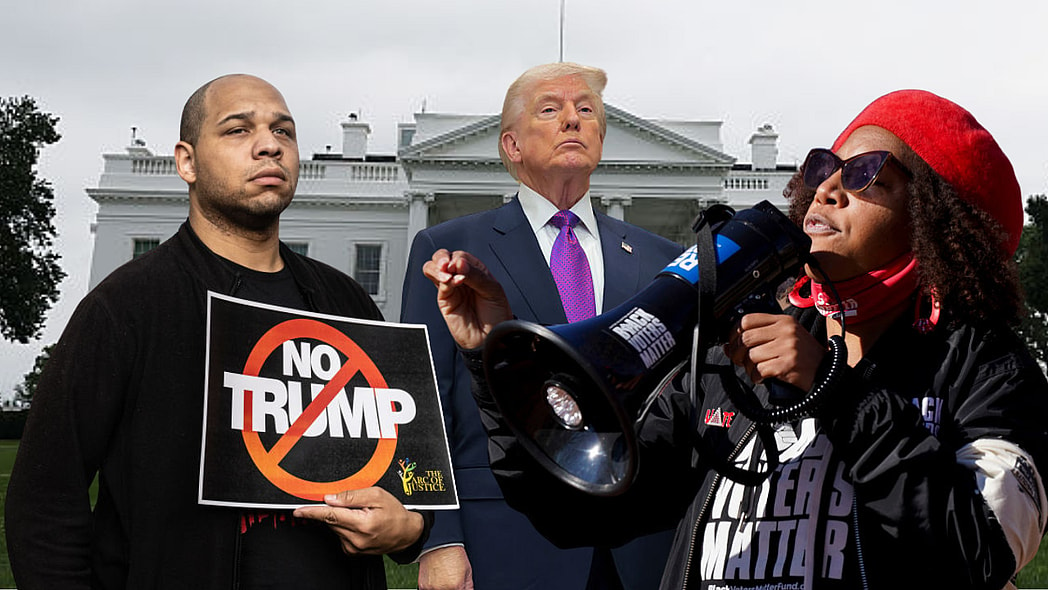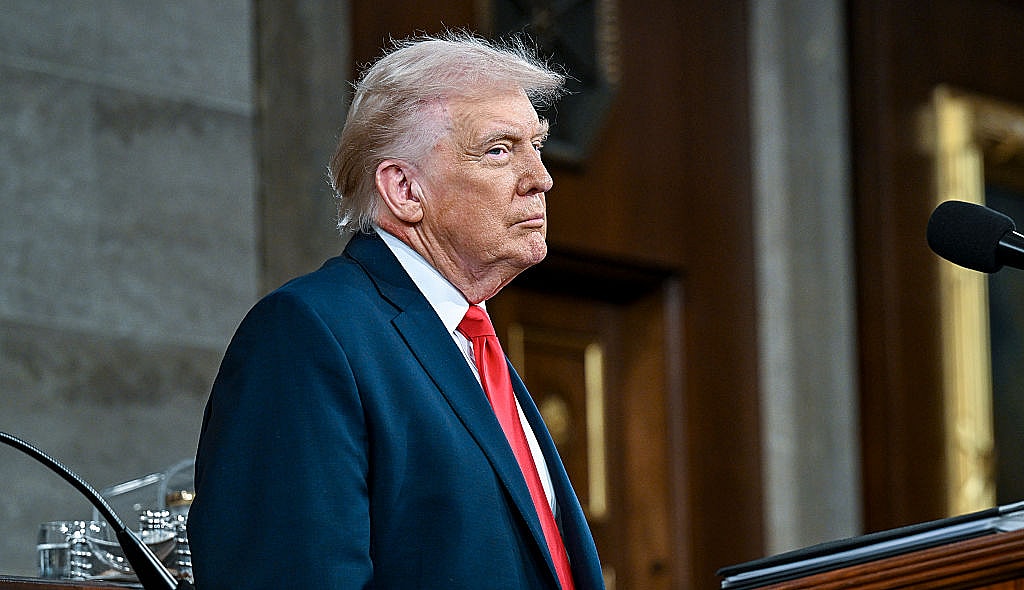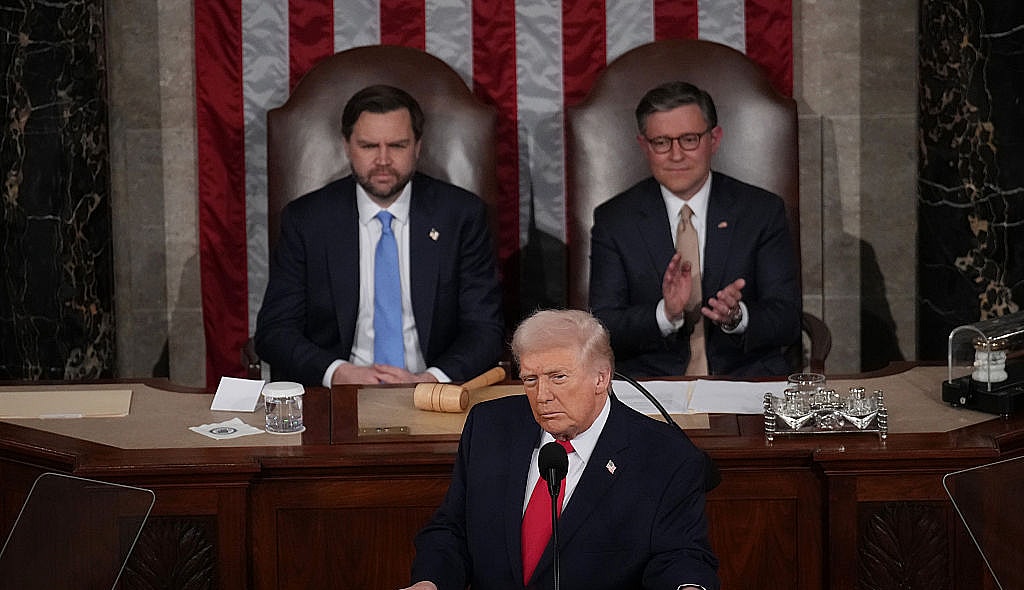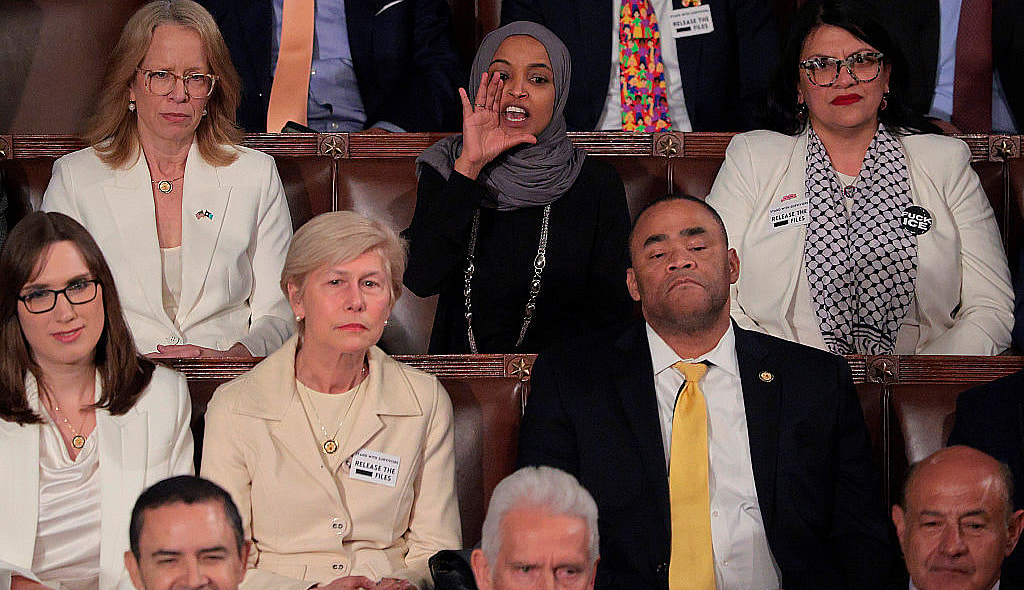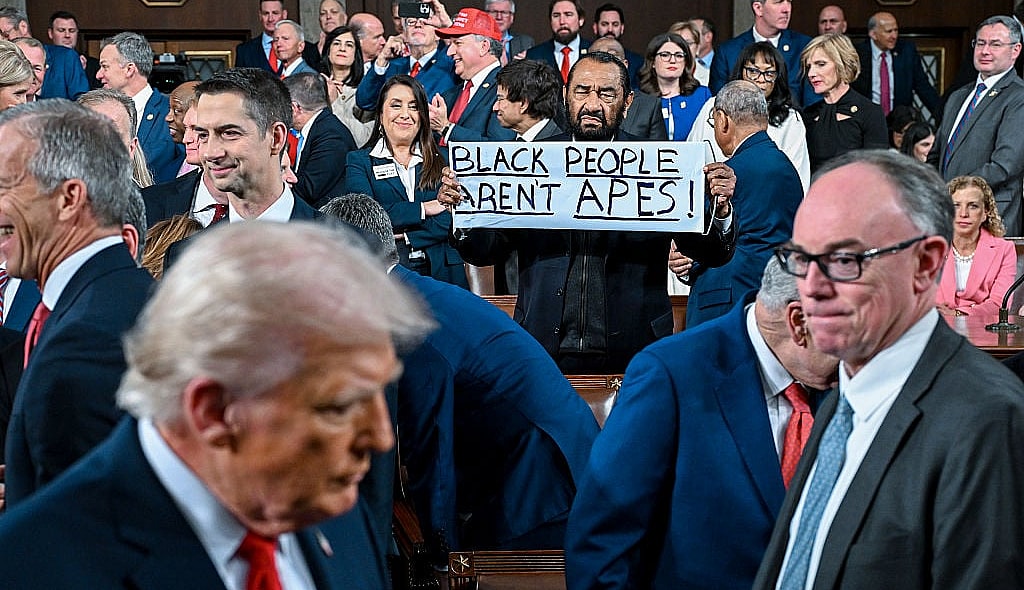As Vice President Kamala Harris travels across the country to pitch what she and President Joe Biden have done to improve economic conditions for Black and brown communities, she is also emerging as a critical voice prosecuting the case against Donald Trump and his economic policies.
In doing so, Harris has particularly tailored her message toward Black men, a voting bloc that polls and anecdotal reporting indicate is more open to voting for Trump or not voting at all in the upcoming 2024 presidential election.
Last week in Philadelphia, while delivering remarks at the national convention for Service Employees International Union (SEIU), Harris, without naming him explicitly, called out Trump’s record as president and his plan for the U.S. economy – which includes extending his signature 2017 tax cuts that economists tell theGrio primarily benefited wealthy Americans and corporations.
“Whereas the last administration buried our country in debt to pay for tax cuts for billionaires, we are helping dig families out of debt by telling billionaires to pay their fair share,” said Harris to thunderous applause.
The vice president’s statement, among several other recent remarks on the campaign trail, signaled a turning point for Harris, who has seemingly dialed up the temperature in making the case for why she and Biden deserve another four years and why Trump returning to the White House would literally cost Black and brown households.
“We’re inside of a little mini Kamala boomlet,” said Democratic strategist Joel Payne, who told theGrio the Biden-Harris administration and campaign have “figured out where to use her immense skill set” and “it’s starting to break through.”
Payne, who headed Hillary Clinton’s 2016 presidential campaign’s Black media outreach, added, “If you had to discern what one of her political skills is, it’s making a case publicly and landing the argument.”
However, Harris isn’t just making the case for why Black and brown voters shouldn’t vote for Trump. America’s first Black vice president has also been hitting communities directly about how the administration is transforming a U.S. economy that has been historically racist and how Black men have especially suffered as a result.

During her “Economic Opportunity Tour,” launched last month, Harris lamented the “sad fact” about Black men and the challenge of accessing generational wealth.
“Homeownership rates for Black men have been falling for three decades straight. We’ve got to do something about that,” the vice president said during the tour’s Detroit stop.
While in Milwaukee for another tour stop, during a moderated conversation with comedian and radio host D.L. Hughley, Harris bemoaned how Black veterans “did not get full advantage” of home loans during America’s homeownership boom. “Discrimination occurred there. So, where there was a boost, some got ahead, and some just didn’t get the benefit of it,” she explained.
The vice president has been consistent in her message on the economic tour, where she directly engages Black and brown Americans about the administration’s work to bring investments to their communities, including access to hundreds of billions of dollars in federal business contracts, loans, and private equity capital.
Similar to her remarks in Philadelphia, Harris told the mostly Black audience in Detroit: “The last administration invested access to tax cuts for billionaires. We are investing in access to capital for entrepreneurs.” The vice president decried “legacies of structural inequities” like racial segregation and redlining that resulted in Black Americans being 40% less likely to own a home — a primary driver for wealth.
“She does that linkage of, ‘Hey, this isn’t just my feelings about Donald Trump being loathsome. This is about what he is promising to do that’s going to harm you, and that’s going to make life worse,” Payne said of the vice president’s messaging.
Trump aside, the vice president is focusing her economic message primarily on Black men as a result of several conversations she had with them over the past year, an official with the Office of the Vice President confirmed with theGrio. As the most powerful woman in the world, often surrounded by other powerful women and Black women — particularly as a member of Alpha Kappa Alpha Sorority, Inc. — the vice president felt Black men were being left out of the conversation.
In May 2023, Harris convened nearly 50 Black male entrepreneurs at the White House to hear from them about the challenges they faced in scaling their businesses. During that convening, the vice president discovered many of them turned to extreme measures to keep their businesses afloat, like maxing out their credit cards.
“Her whole point was folks didn’t have to do that. We have the resources to help them,” said a White House official with knowledge of internal conversations in the vice president’s office.
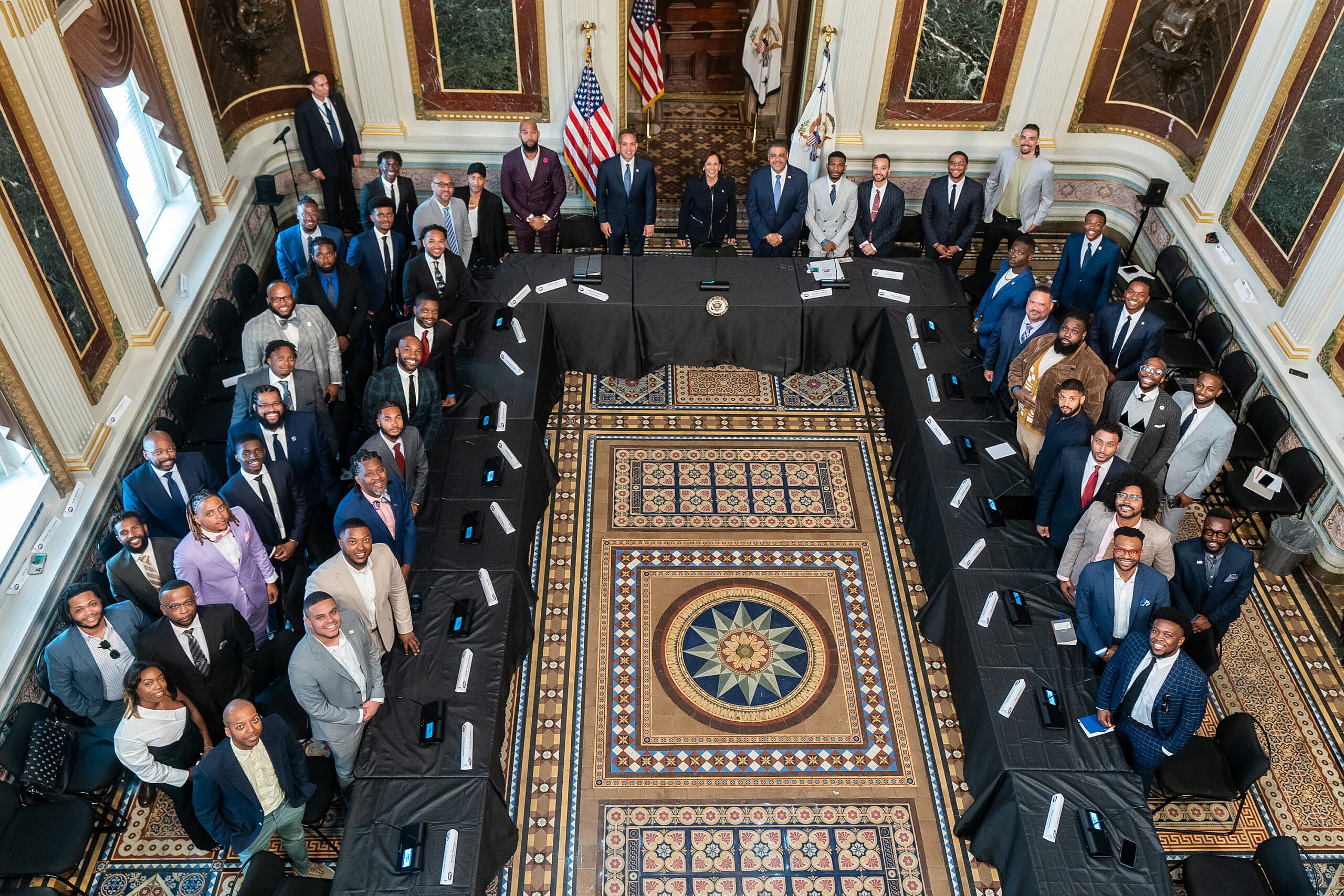
One particularly “candid” exchange occurred last year at the VP’s Washington, D.C., residence with Hughley and other prominent Black men who expressed their frustrations with the Biden-Harris administration. While addressing traditional issues associated with Black men, such as criminal justice, was welcomed, the Black men shared that they also wanted to know what Biden and Harris were doing to help them achieve their economic dreams and support their families.
During the moderated conversation with Harris in Detroit, Hughley shared some of that exchange with Harris and admitted it was “contentious.” However, after learning more about what the administration has done — including achieving a record low Black unemployment rate, 2.5 million more jobs for Black Americans, and increasing Black wealth by 60% — Hughley admitted he was wrong and apologized to the vice president.
“I had let a media narrative co-opt my perspective,” he shared. “You have done what you said you would do. And there was a time that I didn’t believe it.”
“It kind of leans into this brand as somebody who doesn’t shy away from the hard work and doesn’t shy away from going after the political challenges that seem elusive,” Payne said of the vice president’s direct engagement with Black men, particularly those who have been critical.
He added, “If Joe Biden wins in 2024 this November, one of the stories will be what Kamala Harris did to support that and to make that be the case.”
As vice president, Harris has “run towards the hard stuff,” said Payne, including the root causes of immigration, gun violence, and, most recently, the economy and waning enthusiasm with Black Americans, namely Black men.
During an interview with sports-marketing businessman Mav Carter’s YouTube show “Mavericks,” Harris admitted that the job of the vice presidency often feels like a “marathon where people are throwing tomatoes at you.”
“You got to be able to handle that,” maintained the vice president, who said she defines her success not by public sentiment but by being able to “move the needle,” including doing things that “challenge the tradition of [the vice presidential] office.”
Cedric Richmond, a senior adviser to the Biden-Harris reelection campaign and former Biden-Harris White House official, praised the vice president for not only “taking the charge on correcting the record in terms of Trump catering to the top 1% and big businesses at the expense of working families,” but also “highlighting all the things we did that are exactly opposite.”
Richmond told theGrio, “She’s out there rallying an important part of our base and reminding them that this stuff wasn’t easy, but they did it.” He added, “These things didn’t happen by accident. It happened because she and the president were focused on disparities and uplifting the Black community.”


